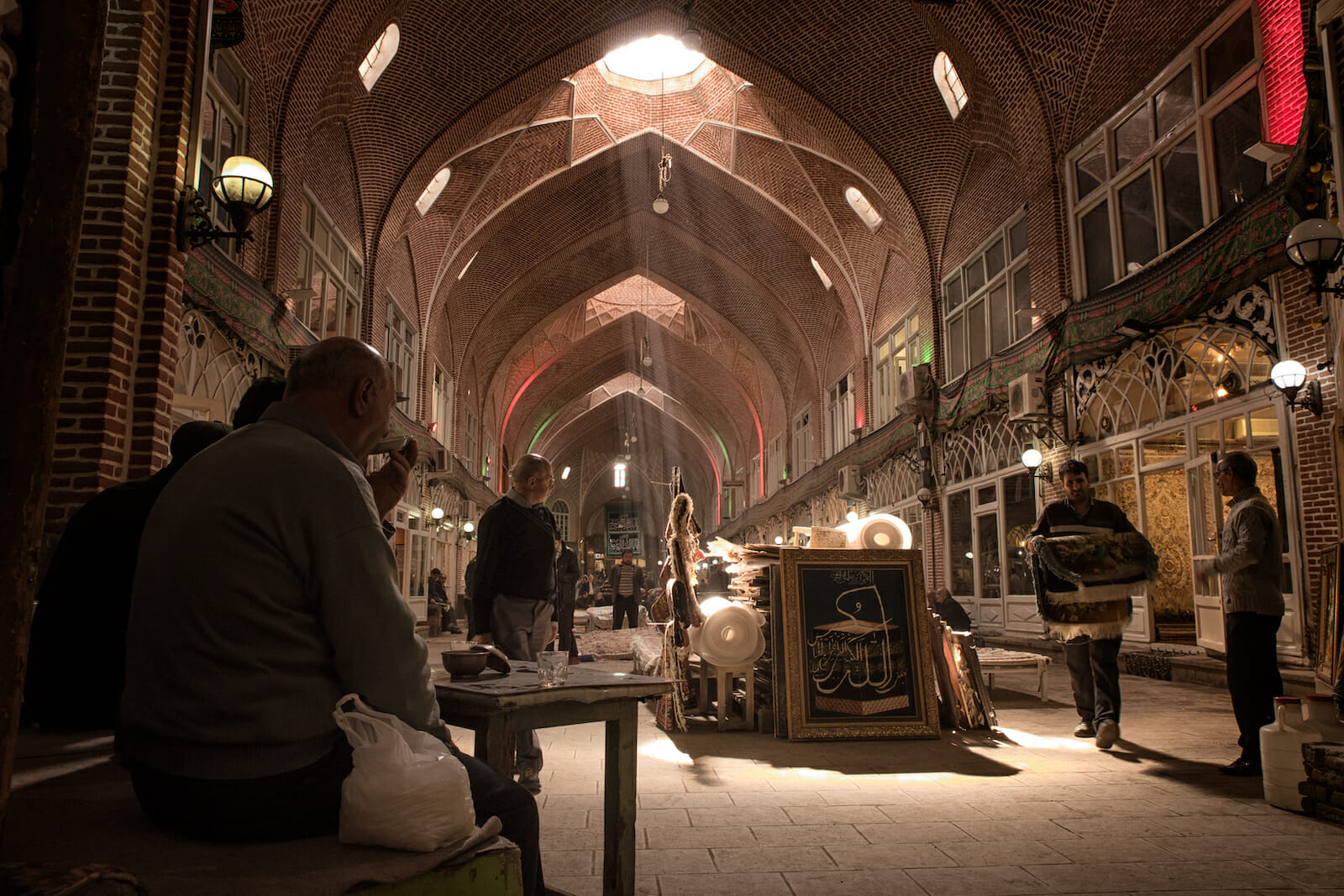
Ordinary Iranians are the Victims of Iran Sanctions
While the United States and the European Union compete with each other in the seemingly endless race of imposing sanctions on Iran, ordinary Iranian citizens are experiencing the brunt of these crippling embargoes. On July 31, the American Israel Public Affairs Committee (AIPAC) sent a letter to all members of the U.S. Congress, demanding a concerted action to approve the Iran Threat Reduction and Syria Human Rights Act, which would impose a new set of sanctions on Iran’s energy and transportation sector. On August 1, the media reported that Congress has ratified the bill and is awaiting President Barack Obama’s signature.
Iran is already under 6 rounds of sanctions endorsed by the United Nations Security Council. The sanctions are purportedly aimed at preventing Tehran from acquiring nuclear weapons even though Iran is a signatory to the NPT and is allowed nuclear energy, which it badly needs in light of its lack of adequate domestic energy production capabilities.
The UNSC sanctions stipulate the freezing of Iran’s international assets, the closure of Iranian banks in other countries, barring the export of nuclear and military facilities to Iran, a ban on investment in Iran’s oil, gas and petrochemical sector, business dealings with the Islamic Revolutionary Guard Corps, insurance transactions and traveling restrictions for high-ranking government and military officials.
The United States, Israel, and the EU have long accused Iran of trying to build nuclear weapons, a charge, which Iran has persistently and categorically denied. Iran says that it needs civilian nuclear power to meet its growing energy needs, especially since Iran is a country mostly reliant on fossil fuels for its energy demands and oil revenues to keep its economy alive. The United States and its allies, in response, have penalized Iran with excruciating economic sanctions to derail the possible chances of Iran developing nuclear weapons.
On January 23, 2012, European Union foreign ministers agreed to impose a multilateral oil embargo on Iran. The oil embargo, which bans European countries from buying crude from Iran, went into effect on July 1. What Western officials say in public is that the sanctions are aimed at punishing the Iranian government and dissuading it from working toward acquiring nuclear weapons. What takes place in reality, however, is that the “smart” sanctions have directly come down like a ton of bricks on the Iranian people, making their life an arduous odyssey of a struggle for survival due to an increasingly ailing economy.
The sanctions have devastated the daily life of ordinary Iranians by bringing the price of goods to skyrocketing heights, students living abroad have been unable to get financial assistance from their parents living in Iran, rendering it impossible for private companies to conduct international transactions and making it extremely difficult for Iranians to get visas to travel abroad. The “smart sanctions” even includes a ban on the import of medicine and foodstuff from abroad. Westerners have had a hard time accepting the fact that certain sensitive medicines, as well as agricultural goods, have not made their way into Iran as a result of sanctions. On May 6, Radio Free Europe/Radio Liberty quoted Iran’s reformist daily, Shargh, that the import of a great deal of vital medicines to Iran has been banned as a result of the sanctions.
These medicines, which Iran is not capable of producing, include drugs for the treatment of cancer, heart disease, and multiple sclerosis. Hamid Reza Emadi, an Iran-based political commentator also confirms that the latest round of sanctions imposed on Iran just a few days ago directly affects the lives of average Iranians. “This latest move by the U.S. Congress shows the extent to which Washington has become frustrated and now it is going to step up their pressure on Iranian civilians by preventing the country from importing agricultural products…Iran is a grain importer and the U.S. knows that and by creating obstacles in the way of grain exports to Iran, the U.S. is clearly committing crimes against humanity because it only affects ordinary Iranians who have got nothing to do with the country’s nuclear energy program,” Emadi said in an interview with Press TV. “Do not forget that it is not just agricultural products; the U.S. is putting maximum pressure on international banks doing business with Iran, therefore Iranian medical companies cannot import some vital medicines,” he added.
The board of directors of the Iranian Hemophilia Society has informed the World Federation of Hemophilia that the lives of tens of thousands of children are being endangered by the lack of drugs. Congressman Ron Paul of Texas has called the recent sanctions an “act of war,” saying that the bill would better be named “Obsession with Iran Act 2012.” “When you put on sanctions on a country, it’s an act of war and that’s what this is all about,” he said.
Some anti-war advocacy groups and organizations in the United States such as the Veterans for Peace and Friends Committee on National Legislation have called on the U.S. government to put an end to its sanctions game with Iran, which is seen by these groups as a declaration of war. However, it seems that these groups will face a tough job to have their voice heard by the U.S. Congress and the White House who are more concerned with delivering a lethal blow to Iran than the effect that the sanctions have on the Iranian people.
Veterans for Peace released a statement, saying that sanctions and threats of military strikes are not viable and logical solutions to the nuclear crisis with Iran. “The United States, European Union and Israel are using Iran’s civilian nuclear program as an excuse to impose devastating economic sanctions against the people of Iran. According to various sources, the sanctions have already wreaked havoc on the Iranian economy, leading to inflation rates of 50 to 100 percent, youth unemployment rate of over 22 percent, drastic reduction of Iran’s domestic production to 40 percent of its capacity, massive closure of economic enterprises and widespread layoffs, and 40 percent drop in the Iranian oil exports during 2012, resulting in a loss of $32 billion in oil income since last year alone,” the statement read.
The group has called for a nuclear-free Middle East in an apparent allusion to Israel’s nuclear arsenal, which Israel’s allies are not allowed to talk about openly in public. Along with India and Pakistan, Israel is the only country in the world, which is not a signatory to the Nuclear Non-Proliferation Treaty. By the late 1990s, the U.S. intelligence community had estimated that Israel possessed between 75-130 nuclear weapons, based on production estimates.
Iran is currently experiencing difficult times, and its people are under mounting pressures in their daily lives. Iran’s economy is on the brink of bankruptcy as a result of the biting economic sanctions and the international community is calmly and silently witnessing the painful suffering of the Iranian people. The sanctions targeting the Iranian government clearly run counter to the principles of human rights, but it seems that those who advocate such values don’t differentiate between the Iranian government and those who might have some “rights” including the right to access to medicine, foodstuff, employment and above all, respect and human dignity.

